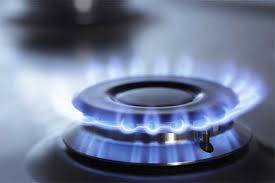Islamabad - The domestic consumers have been hit hard by increase in gas tariff and they are paying the highest prices among all sectors of the society.
In October 2018, the OGRA had increased gas prices up to 143 percent for the domestic consumers.
Prime Minister Imran Khan on Sunday took notice of high gas bills for domestic consumers and directed the minister for petroleum to conduct an inquiry into the matter.
“Putting an additional burden on domestic gas consumers is unacceptable,” the prime minister said. The prime minister directed to conduct an enquiry into the matter.
Under the increase, the domestic consumers are paying the highest prices as compared to other segments of the society. For the slab of up to 50 million cubic feet of gas per day (mmcfd), the price was increased by 10 per cent to Rs121 per unit and it increased the monthly bill of consumers from Rs252 to Rs275.
For the category of up to 100 mmcfd, the gas price had been increased by 15 per cent which pushed the monthly bill of these consumers by Rs 71. For the category of up to 200 mmcfd, the gas price was increased by 20 per cent which increased the monthly bill of this category from Rs1,851 to around Rs2,216 and above. For the slab of up to 300 mmcfd, the gas price rose by 25 per cent which increased the bills from Rs2,764 to Rs3,449. For the next category of up to 400 mmcfd, the price was raised by 30 per cent which increased the monthly bill from Rs9,990 to Rs12,980.
For the sixth slab of up to 500 mmcfd and above, the gas price was increased by 143 per cent which increased the monthly bills of the consumers to Rs 30,339. Minimum charges had also been increased for the gas consumers from Rs148.50 to Rs163.35 per month.
During winter, the gas bills of the domestic consumers have shown abnormal increase which compelled the consumers to protest in front of several SNGPL offices. For the last couple of weeks, domestic consumers are protesting over high gas prices ranging from 12000 to 35000 for them.
There were several factors behind the high gas billing for domestic consumers which include the price determination without carrying proper study and provision of high pressure to domestic consumers by SNGPL without approval of OGRA, said the source.
Neither the Petroleum Division (Directorate General Gas) nor the Oil and Gas Regulatory Authority (OGRA) had any role in determination or working out of the gas prices for the consumers, official sources told The Nation. Ironically all the four directorates dealing with oil and gas, there is only one senior petroleum economist and that’s too on deputation, said the source. The reason for lack of economist is that DGPC, instead of using the training funds to train its own officials had sent deputationist abroad for training and study, said the source.
The source said that high gas prices were not worked out by DG Gas but an official of the Directorate General Petroleum Concessions. In a press conference last week the petroleum minister, Ghulam Sarwar, was questioned by the media that who worked out the gas prices but he had no reply to these questions. Meanwhile, in the same press conference instead of the official of DG Gas, the officials of the DGPC were accompanied with petroleum minister.
Pertinent to mention here that the auditor general of Pakistan had pointed irregularities by the DGPC in conversion of leases to Petroleum Policy 2012, Windfall levy, which has caused the national exchequer a loss of Rs 64.44 billion. Auditor office had recommended strict action against officials involved in illegality.
The companies got benefits in billions of rupees and the poor consumers are paying the price for it, said the source. On one hand the officials of the DGPC obliged the gas producer by illegally converting its price agreements and on the other hand it obliged the Sui companies with working out high prices for the domestic consumers, said the source.
Following the auditor general’s report, secretary petroleum division asked DGPC to repatriate senior petroleum economist to his parent company. But the director general petroleum concession, using delaying tactics, told the secretary petroleum, “We may repatriate senior petroleum economist to his parent company at some point of time. It would, therefore, be expedient that the two state-owned companies (i.e. OGDCL and PPL) may be requested to depute a suitable professional who will be trained by the said economist to get acquainted with relevant intricate policy/regulatory matters paving the way for his repatriation.
The other reason of the high bills are violation of OGRA’s gas pressure rules by SNGPL, said the source. OGRA in a letter asked the SNGPL that “application of higher pressure factory by the SNGPL is resulting in higher gas bills.
The authority has directed SNGPL to re-examine the application of correct pressure factor in domestic consumer gas bills and make any adjustment on this account to ensure the compliance of provision of clause 11 of the standard supply contract with the consumers. Further, the compliance of said clause may be ensured henceforth to avoid the deviation from the standard supply contract vis-a-vis actual bills.






